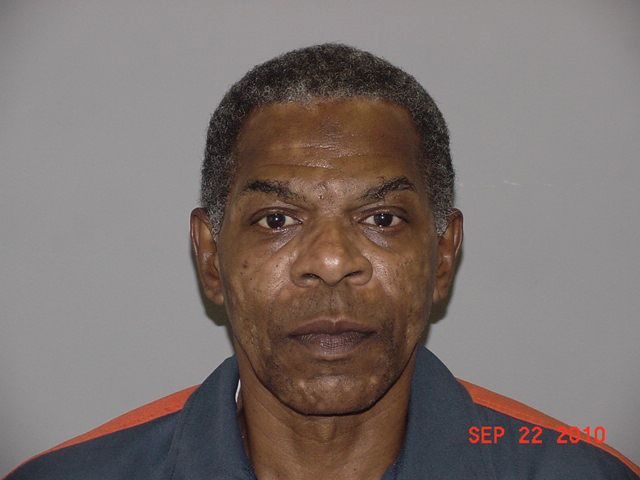
Zerious Bobby Meadows
Meadows has been incarcerated for 47 years, since the age of 16
On Sept. 23, Judge Bruce Morrow sentenced Meadows to 25-45 yrs. with a credit of 16,930 days; Chief Judge Timothy Kenny signed off on sentence
Prosecution appealed, demanding 60 year max; case awaits COA hearing
Support Edward Sanders and David Walton at re-sentencing Tues. Nov. 29 at 9 a.m. — Judge James Chylinski should look at Meadows case
“I really don’t feel that there should be every door slammed shut on a sixteen-year-old.” – Detroit Recorders Court Judge Susan Borman, 1975
By Diane Bukowski
November 25, 2016
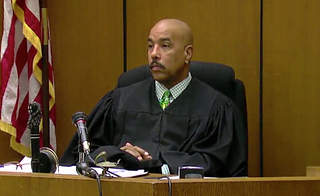
Wayne County Circuit Court Judge Bruce Morrow
DETROIT – A ray of light has broken through the mean clouds surrounding Michigan’s draconic juvenile lifer re-sentencing processes, in the case of Zerious Bobby Meadows.
On Sept. 23, Wayne County Circuit Court Judge Bruce Morrow re-sentenced Meadows to a term of 25-45 years with a time-served credit of 16, 930 days. The sentence was signed off on by Chief Criminal Court Judge Timothy Kenny. It should have meant Meadows’ immediate release.
However, Wayne County Prosecutor Kym Worthy appears determined to exact every pound of flesh possible from the county’s juvenile lifers, even if it means their dying in prison. She appealed Judge Morrow’s re-sentence of Meadows, without giving notice during the hearing. She claims that state statutes governing juvenile lifer re-sentencing MANDATE a maximum term of 60 years for those for whom the prosecutor does not re-recommend JLWOP. She has also asked for his case to be re-assigned to another judge. The case has now been stayed pending an appeals court decision.

Wayne Co. Pros. Kym Worthy at odds with Morrow, Kenny

Wayne County Circuit Court Criminal Chief Judge Timothy Kenny.
Mr. Meadows was sentenced to juvenile life without parole (JLWOP) for a crime of felony murder committed in 1970 when he was 16. He has now served 47 years in prison and is 62 years old. He has a stellar prison record, with only 3 misconducts in 47 years, the last 20 years ago. He also has a large number of family members and friends ready to support him on release, according to his attorney Melvin Houston.
At the time of Meadows’ sentencing on re-trial in 1975, then Recorders Court Judge Susan Borman challenged the practice of sending children to die in prison.
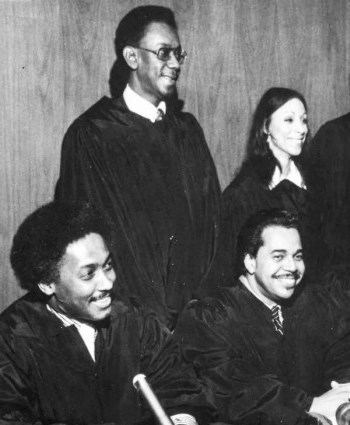
Recorders Court Judge Susan Borman (top r) with others inducted into Recorders Court in 1973 including noted Judge James Del rio (seated at right).
“. . . I really don’t feel that there should be every door slammed shut on a sixteen-year-old, Judge Borman said. “I think there should be some room after the serving of a very long sentence, true, there should be some room for eventual parole in a case such as this. I think that there is something wrong with the law that gives the court no discretion at all. Where the defendant has to spend the rest of his natural life behind bars, and it is particularly tragic in a case where it is a sixteen-year-old child that has been convicted.”
The Appeals Court has granted a prosecution motion for immediate consideration, but denied the prosecution’s motion to waive production of the transcripts. Once those are received, the higher court’s decision should affect the cases of hundreds of other juvenile lifers being automatically re-sentenced to the maximum term of 60 years. That maximum is referred to in state laws meant to undercut the U.S. Supreme Court’s historic Miller v. Alabama (2012) and Montgomery v. Louisiana (2016) rulings that juvenile life without parole is unconstitutional, “cruel and unusual punishment.”

Edward Sanders

David Walton
Those juvenile lifers include individuals like Edward Sanders, who brought Meadows’ case to VOD’s attention, and David Walton.
Their re-sentencing hearing is set for Tues. Nov. 29 at 9 a.m. in front of Judge James Chylinski. They are asking family and friends to turn out in force. Both have been locked up 41 years since the ages of 17, for a drive-by killing in which they were not the shooters. Both have excellent prison records as well. Sanders graduated from college in prison and has become a jailhouse lawyer, while Walton
With regard to Meadows, Atty. Houston told the Court of Appeals that recent court decisions are not in line with Worthy’s stance.
He cites a 2016 decision by the Sixth Circuit Court in Starks v. Easterling, which says, “lengthy sentences that approach or exceed a defendant’s life expectancy, regardless of whether that sentence bears the title ‘life without parole,’ constitutes ‘cruel and unusual’ punishment when imposed on youth, and violates the constitutional mandates of Miller and Montgomery.” Wayne County is within the Sixth Circuit’s jurisdiction.
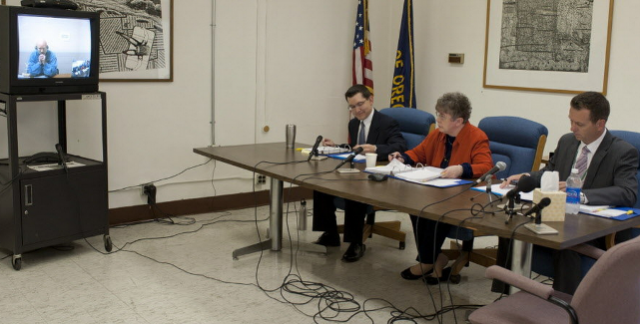
Parole board hearing
Houston continues, “Absent the court issuing an individualized sentence for Mr. Meadows based on the extensive evidence presented, the court would be abdicating its responsibility. Another ruling Atty. Houston cites from says, “Placing the decision with the Parole Board, with its limited resources and lack of sentencing expertise, is not a substitute for a judicially imposed sentence.”
In a 2015 article, How Parole Boards Keep Prisoners in the Dark and Behind Bars, the Washington Post reported, “In 1997, the Michigan board published a report trumpeting its transformation into “a Parole Board that is much less willing to release criminals who complete their minimum sentences — and much less willing to release criminals at all, forcing many to serve their maximum sentences.”
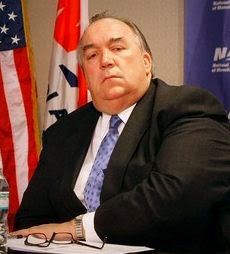
Former Michigan Gov. John Engler made parole nearly impossible.

Stephen Marschke, head of Michigan’s first Engler-appointed parole board.
Attorney Houston responded to the prosecutor’s appeal of Mr. Meadows’ re-sentencing under MCL 769.25a(4)(c).
That statute, Atty. Houston says, “sets the maximum as 60 years and does not prevent a term of less than 60 years. Therefore, Mr. Meadows’ sentence of 25-45 years is within the statute’s limits. The phrase ‘a maximum of 60 years’ means just that—the maximum must be 60 years. If the legislature wanted to deprive the sentencing court of any and all jurisdiction in this matter, it would easily have said ‘no less than 60 years.’ The People’s interpretation is not only contrary to Miller and Montgomery, it is inconsistent with some of the provisions recently addressed by the Michigan Supreme Court in People v. Lockridge . . .”
He compares this to language in MCL 769.25 which DOES include the language “not less than 60 years.”
“This supports the legislative intent to treat those who had already served long, unconstitutional sentences, like Mr. Meadows, and for whom the court had the opportunity to review the evidence of behavior and rehabilitation after years (in this case 47 years!) should have the authority to render a proportional sentence based on the evidence,” Atty. Houston writes.

Florida juvenile lifer Christopher Burton
As one precedent, he cites an unpublished decision by the 13th Judicial Circuit Court of Florida, which struck down a state statute requiring a mandatory minimum sentencing of 40 years for juvenile lifers there, calling it unconstitutional. The case is State of Florida vs. Christopher Burton.
“Miller requires ‘that a sentence follow a certain process—considering an offender’s youth and attendant characteristics—before imposing a particular penalty,” Circuit Judge William Fuente wrote in the decision. “But the mandatory sentencing provision of section 775.082(1)(b) prevents a sentencing court from exercising the full extent of judicial discretion that Miller requires. This facet of the statute is irreconcilable with prevailing Eighth Amendment jurisprudence.”
Houston says Mr. Meadows at the age of 62 is not the same person he was at 16.
“Mr. Meadows was a juvenile when he was arrested in this case and has since matured into an adult; in other words, the person convicted of setting fire to the Turner’s home back in 1970 is not the same person who was resentenced on September 23, 2016. Mr. Meadows completed his G.E.D., as well as some post-high school education while incarcerated. He has also completed both AA and NA programs offered by the MDOC.

Meadows has extensive family support, says his attorney Melvin Houston.
“Mr. Meadows’ work performance has received numerous positive evaluations. . . These reports note that Mr. Meadows is a good worker, doing a good job, and that he takes pride in completing assignments. Mr. Meadows was recommended for and completed Machine Shop I and II. He has clearly taken advantage of the opportunities made available to him by the MDOC.”
Houston adds, “On a personal note, Mr. Meadows enjoys broad support from his large circle of family and friends. He has seven surviving siblings, along with numerous nieces and nephews. Since his incarceration began, the record shows Mr. Meadows has received at least one visit each month from either his mother (his father, who passed away about twenty years ago, was also a frequent visitor), one of his sisters, one of his brothers, the children of his siblings, or one of his many friends. Because of this large support network, Mr. Meadows will have a stable place to live with the support of people who love him.”
The Appeals Court panel that will rule on Mr. Meadows’ re-sentencing is composed of Christopher M, Murray, Presldlng Judge, and Judges Karen M. Fort Hood and Michael J, Riordan.
Related documents:
http://voiceofdetroit.net/wp-content/uploads/MeadowsCOAanddefense.pdf
http://voiceofdetroit.net/wp-content/uploads/Meadowsexhibits.compressed.pdf
http://voiceofdetroit.net/wp-content/uploads/Starks-v-Easterling-Sixth-Circuit.pdf
Related stories:
http://www.rudoilaw.com/michigan-parole-boards#.WDyZK9UrLIU
#FreeZeriousMeadowsNOW, #Justice4TimothyKincaid, #Justice4WaymonKincaid, #FreeCharlesLewis, #FreeEdwardSanders, #FreeDavidWalton, #FreeMichiganJuvenileLifers, #FreeMichiganParolableLifers, #TeardownPoliceStatePrisonNation




